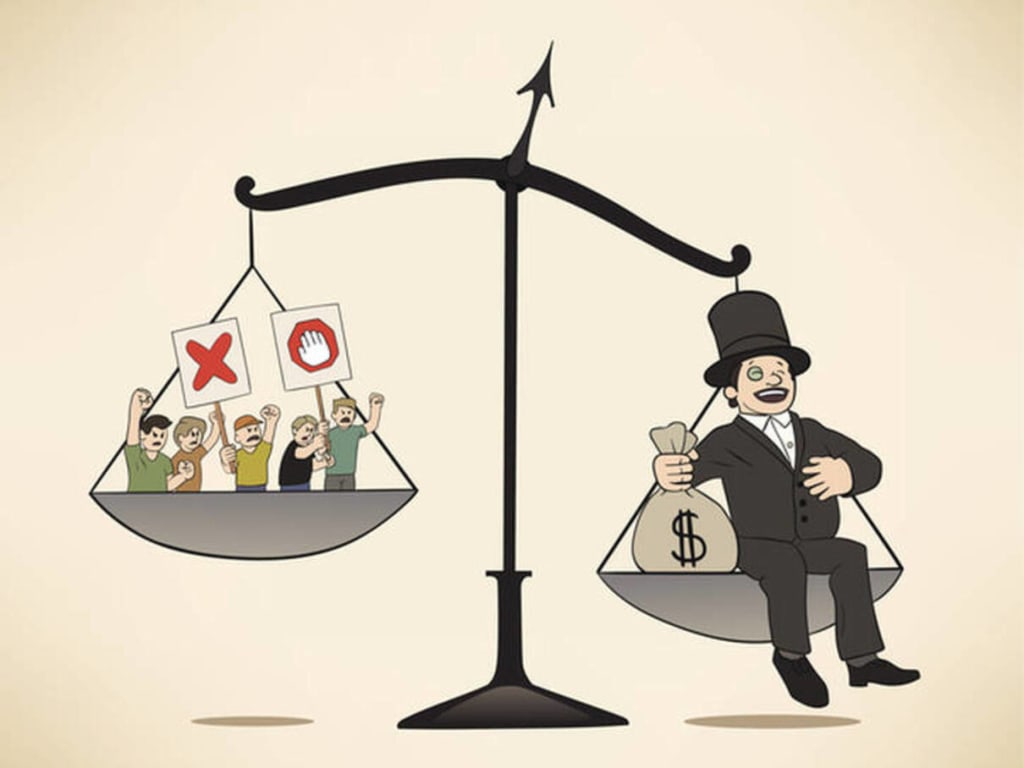
Inequality is a pervasive and persistent problem in our world today, affecting individuals and communities across the globe. Inequality takes many forms, including economic, social, and political inequality. In this essay, we will explore the various types of inequality and their causes, as well as the ways in which inequality affects people's lives.
One of the most visible and pervasive forms of inequality is economic inequality. Economic inequality refers to the unequal distribution of wealth and income in a society. This can manifest in many ways, including differences in salaries and wages, access to education and job opportunities, and access to basic resources such as food, housing, and healthcare. Economic inequality is often driven by structural factors such as discrimination, lack of access to education and training, and limited economic opportunities in certain regions or communities.
Social inequality is another form of inequality that affects people's lives. Social inequality refers to differences in social status or class, which can be determined by factors such as race, gender, sexuality, and religion. Social inequality can manifest in many ways, including discrimination, prejudice, and unequal treatment in the workplace and in society at large. Social inequality can also lead to the perpetuation of stereotypes and biases, which can have negative impacts on individuals and communities.
Political inequality is another form of inequality that can have a significant impact on people's lives. Political inequality refers to the unequal distribution of political power, which can lead to unequal access to political representation and decision-making processes. This can manifest in many ways, including limited access to voting rights, gerrymandering, and unequal access to political resources such as campaign financing. Political inequality can also lead to the perpetuation of systemic biases and inequalities in policies and programs.
The causes of inequality are complex and multifaceted. Structural factors such as discrimination, lack of access to education and training, and limited economic opportunities can all contribute to economic, social, and political inequality. Historical factors such as colonialism, slavery, and imperialism can also contribute to inequalities that persist today. In addition, cultural factors such as stereotypes and biases can perpetuate inequality by reinforcing beliefs and attitudes that limit opportunities for certain groups of people.
Inequality can have significant impacts on people's lives, including limiting opportunities for economic, social, and political advancement. Economic inequality can lead to poverty, which can have negative impacts on health, education, and overall well-being. Social inequality can lead to discrimination, prejudice, and unequal treatment, which can lead to stress, anxiety, and other negative mental health outcomes. Political inequality can lead to limited access to political representation and decision-making processes, which can limit opportunities for political engagement and advocacy.
Addressing inequality requires a multi-faceted approach that takes into account the many factors that contribute to the problem. This includes addressing structural factors such as discrimination, lack of access to education and training, and limited economic opportunities. It also involves addressing historical factors such as colonialism, slavery, and imperialism, and promoting cultural change to address biases and stereotypes.
There are many initiatives aimed at addressing inequality at the global, national, and local levels. These include policies and programs aimed at promoting economic growth and development, increasing access to education and training, and addressing discrimination and prejudice. In addition, advocacy and social movements can play a key role in promoting change and addressing systemic inequalities.
In conclusion, inequality is a pervasive and persistent problem that affects individuals and communities across the globe. Economic, social, and political inequality all contribute to the problem, and addressing it requires a multi-faceted approach that takes into account the many factors that contribute to the problem. By promoting policies and programs aimed at addressing inequality, as well as promoting cultural change and advocacy, we can work towards a more just and equitable world for all.
About the Creator
sri kanth
Blogging is not rocket science, it's about being yourself and putting what you have into it.






Comments
There are no comments for this story
Be the first to respond and start the conversation.